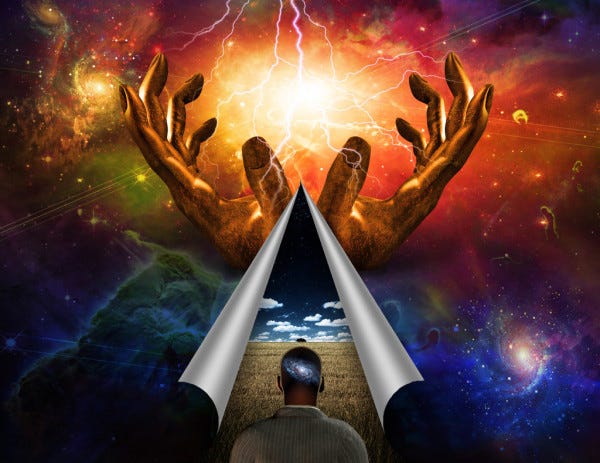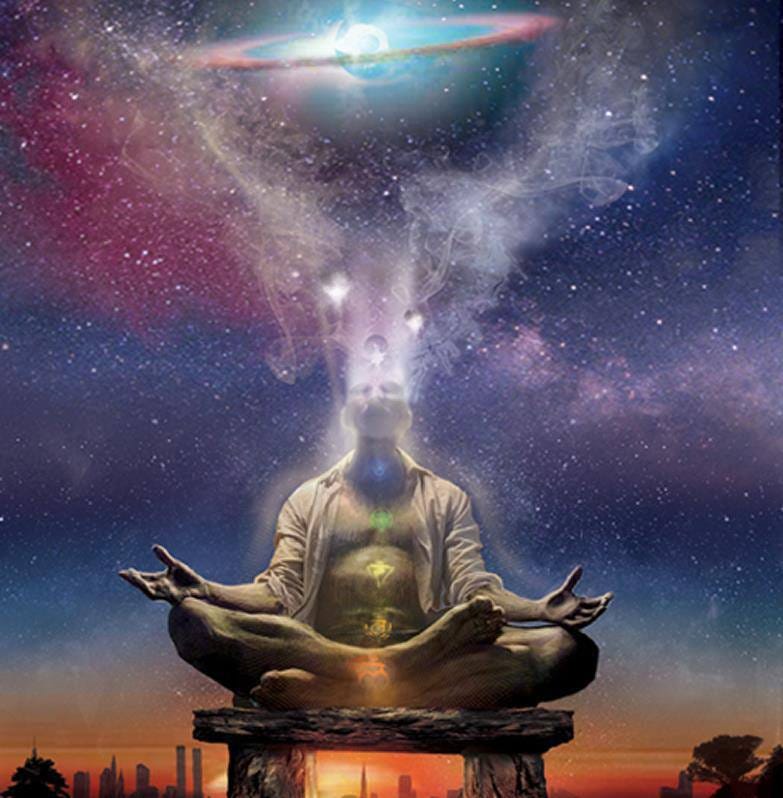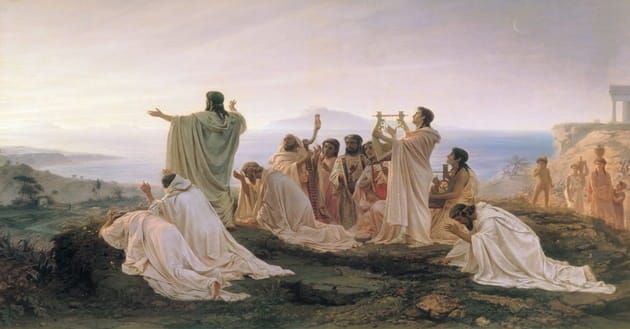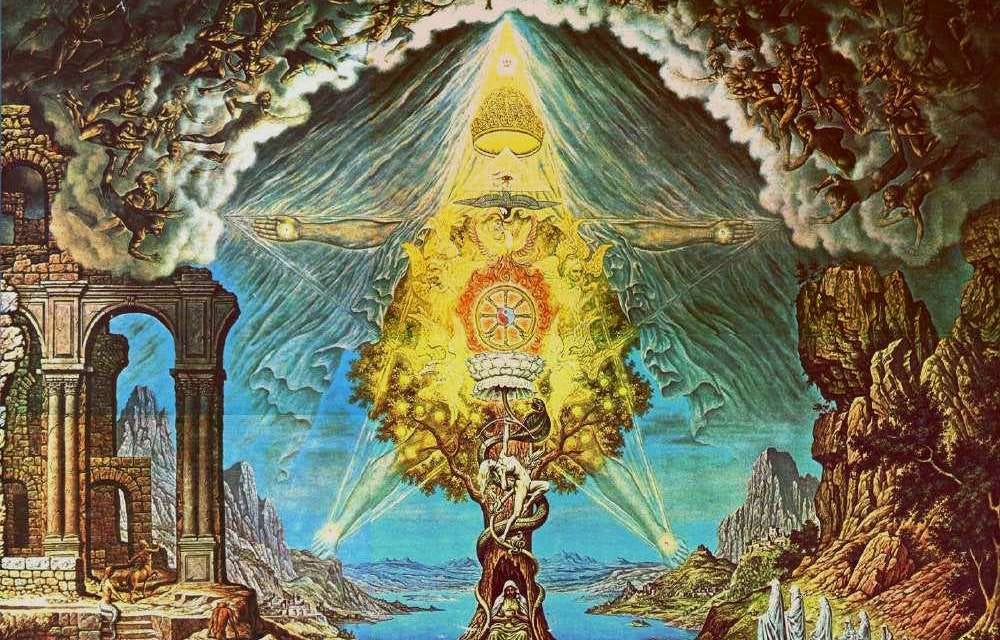WHAT IS GNOSTICISM

Gnosticism is a collection of religious ideas and systems which originated in the late 1st century AD among Jewish and early Christian sects.

The Gnostic Origin seems to draw more from mythologies of religions with pantheons. Greek Roman mythology had original creators and then lesser gods who created and ruled over humans. They were more flawed than one thinks of the Christian God.

A distinctive Christian heresy? A competitor of burgeoning Christianity? A pre-Christian folk religion traceable to "Oriental Syncretism"? How do we account for the disparate ideas, writings, and practices that have been placed under the Gnostic Rubric? To do so, Karen King says, we must first disentangle modern historiography from the Christian discourse of orthodoxy and heresy that has pervaded--and distorted--the story.
Gnosticism is the belief that human beings contain a piece of God (the highest good or a divine spark) within themselves, which has fallen from the immaterial world into the bodies of humans. All physical matter is subject to decay, rotting, and death.
What do the Gnostics believe?
Gnostics considered the principal element of salvation to be direct knowledge of the supreme divinity in the form of mystical or esoteric insight. Many Gnostic texts deal not in concepts of sin and repentance, but with illusion and enlightenment.
Gnosticism from Ancient Greek Romanized 'having knowledge' and is a collection of religious ideas and systems which originated in the late 1st century AD among Jewish and early Christian sects. These various groups emphasized personal spiritual knowledge "GNOIS" above the orthodox teachings, traditions, and authority of traditional religious institutions. Viewing material existence as flawed or evil, Gnostic cosmogony generally presents a distinction between a supreme, hidden God and a malevolent lesser divinity. Sometimes associated with the Yahweh of the Old Testament who is responsible for creating the Material Universe. Gnostics considered the principal element of salvation to be direct knowledge of the supreme divinity in the form of mystical or esoteric insight. Many Gnostic texts deal not in concepts of sin and repentance, but with illusion and enlightenment.
Gnostic writings flourished among certain Christian groups in the Mediterranean world until about the second century, when the Fathers of the early Church denounced them as Heresy. Efforts to destroy these texts proved largely successful, resulting in the survival of very little writing by Gnostic theologians. Nonetheless, early Gnostic teachers such as Valentinus saw their beliefs as aligned with Christianity.

In the Gnostic Christian tradition, Christ is seen as a divine being which has taken human form in order to lead humanity back to the Light. However, Gnosticism is not a single standardized system, and the emphasis on direct experience allows for a wide variety of teachings, including distinct currents such as Valentinianism and Sethianism. In the Persian Empire, Gnostic ideas spread as far as China via the related movement of Manichaeism, while Mandaeism is still alive in Iraq.
For centuries, most scholarly knowledge of Gnosticism was limited to the anti-heretical writings of orthodox Christian figures such as Irenaeus of Lyons and Hippolytus of Rome. There was a renewed interest in Gnosticism after the 1945 discovery of Egypt's Nag Hammadi Library, a collection of rare early Christian and Gnostic texts, including the Gospel of Thomas and the Apocryphon of John.

GNOSTICISM: GUARD AGAINST FALSELY CALLED KNOWLEDGE- HOW IMPORTANT IS TRUTH TO YOU?
A major question in scholarly research is the qualification of Gnosticism as either an interreligious phenomenon or as an independent religion. Scholars have acknowledged the influence of sources such as Hellenistic Judaism, Zoroastrianism, and Platonism, and some have noted possible links to Buddhism and Hinduism, though the evidence of direct influence from the latter sources is inconclusive.
Gnostics have a low view of creation. Gnostics believe “The Universe, having been created by an Inferior and Ignorant Power, is a dark prison in which human souls are held captive.”
The ideas that matter is evil and the spirit is pure goodness largely characterize this aberrant philosophy. Consequently, human nature itself is viewed through this dichotomous prism: “A human being is a divine spark that originated in the transcendent divine world…The human body, on the other hand, is part of the cosmic prison from which the spirit must be released.”

MOST CHRISTIANS ARE GNOSTIC AND DON’T EVEN KNOW IT! ARE YOU?
One can find vestiges of such teachings not only in Christian songs but in Christian books that teach this world and everything in it is bad; life is just dress rehearsal for the next life; this world isn’t our home, we’re just passing through. This is one of the most common ways evangelicals are Gnostic in their beliefs. Had the effect of enabling the Gnostics to make sense of several passages in the Old Testament that had long troubled Christians and even Jews. “The god of Genesis,” notes David Brakke,
Walks in an earthly garden and must ask where Adam is (Genesis 3:8-9); he concludes that his creation of humanity and animals was a mistake and decides to destroy all people, except for a single family and a few beasts (6:5-22); and he later annihilates entire cities by raining sulfur and fire down upon them (19:24-25).[19]
The Gnostics took Genesis at its word and concluded that this god was simply malicious, hot-tempered, stupid, and inept.

THINGS YOU MAY NOT KNOW: The definition of Gnosticism was a 2nd-century philosophy that believed that a lesser and imperfect divinity Called The Demiurge created the world while Christ was a messenger for a supreme divine being.
THINGS YOU MAY WANT TO SAVE: Egypt’s Nag Hammadi Library, a collection of rare early Christian and Gnostic texts discovered by a farmer in the arid dessert.
ZENTRAVELER SAYS: The Bible and the written word is not always true? Before you reach judgment you should evaluate all possibilities.
From here to Infinity is a relatively short ride! The next leg takes eons and eons as you fly through the Barycentric Dynamical Time Zone! …and on and on and on. Follow the Zentraveler Newsletter often for Travel, Health and Zen-like stories and such. Where else can you get a three in one Newsletter For The Price of FREE?

ZENTRAVELER IS A PERSONAL NEWSLETTER, DESIGNED TO GIVE TRAVEL, HEALTH, WRITING AND HUMOR INCLUDING HELPFUL HINTS WITH A ZEN LIKE QUALITY


